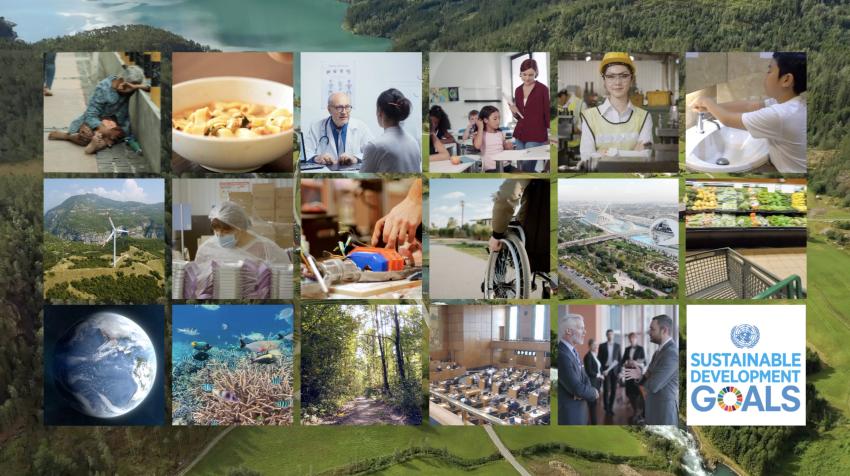How are today’s global crises affecting efforts to achieve the Sustainable Development Goals (SDGs)? On 7 July, the international community will find out as the annual report tracking SDG progress will be launched. To learn more about this year’s edition and why the data it presents is critical, we spoke with UN DESA’s Yongyi Min.
What do you want people to know about the Sustainable Development Goals Report; why is it important for the global community?

“The Sustainable Development Goals Report is the only UN official report that monitors global progress on the 2030 Agenda for Sustainable Development. This annual progress report is prepared by UN DESA, in collaboration with the entire UN Statistical System, consisting of more than 50 international and regional agencies. Behind this report are 2.3 million data observations from Member States, which are also housed in the Global SDG Indicator Database. Hundreds of thousands of statisticians and experts from countries, international agencies, academia, and civil society around the world have contributed to data collection and analysis on monitoring progress towards the global goals. Therefore, this is truly a collective effort of the entire international statistical community.
Using the latest available data and estimates, the SDG Report 2022 gives the global community a reality check on the devastating impacts of multiple crises affecting people’s lives and livelihoods. It details the reversal of years of progress in eradicating poverty and hunger, improving health and education, providing basic services, and much more. The report also highlights areas that need urgent actions in order to rescue the SDGs and deliver meaningful progress for people and the planet by 2030.”
Your team has been tracking the goals since their adoption in 2015. Given recent global crises like the war in Ukraine, what are some of the major impacts you see?
“This year’s report paints a particularly bleak picture of the 2030 Agenda for Sustainable Development and how it is being seriously jeopardized. The multiple and intersecting crises, predominated by COVID-19, climate change and the conflicts in Ukraine and elsewhere, impact all of the SDGs. Just to give a few examples, as many as 161 million additional people slid into chronic hunger in 2020 alone. Soaring food prices and the food shortage caused by the Ukraine crisis will push millions more into hunger and poverty. Education disruptions brought by the pandemic, conflicts, and disasters have had devastating consequences on children, not only impacting their learning but also their psychosocial well-being. We also see a significant rise in anxiety and depression among young people. To top it off, the world is on the brink of a climate catastrophe and the window to avert it is closing rapidly.”
Is there one goal that our global community has made the most progress on?
“Before the pandemic, progress was being made in many important SDGs, such as reducing poverty, improving maternal and child health, increasing access to electricity, and advancing gender equality. Among all goals, I think SDG 7, on sustainable and modern energy for all, is probably the goal that made the most progress. Between 2010 and 2019, the number of people without electricity shrank from 1.2 billion to 733 million, total renewable energy consumption increased by 25 per cent, the share of renewables in the electricity sector increased from 19.7per cent to 26.2 per cent, and energy efficiency continues to improve. Nevertheless, the current pace of progress is still insufficient to achieve SDG 7 by 2030.”
How do you believe data and statistics can help to advance the SDGs, and the world to build back better and stronger?
“To keep ahead of these crises, we must first understand where we are and where we are going and know how to shape policies and interventions. Without relevant data, even well-intentioned policymakers seeking to protect people and the planet are working in the dark. Data that are timely, high-quality, and disaggregated can help trigger more targeted responses, anticipate future needs, and fine-tune the design of critical actions. To emerge stronger from the crisis and prepare for unknown challenges ahead, we really want to ask national governments and the international community to prioritize statistical development because data are an indispensable tool that shed light on the path ahead.”
The Sustainable Development Goals Report will be launched on 7 July and can then be accessed https://unstats.un.org/sdgs/report/2022/.

